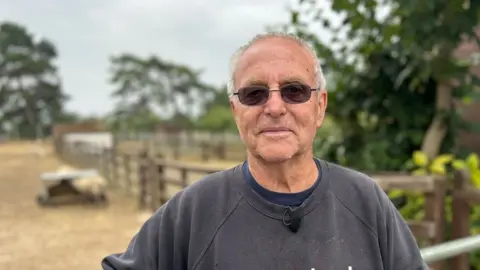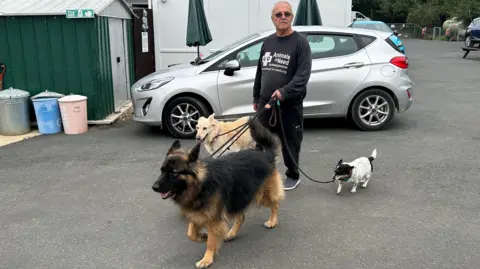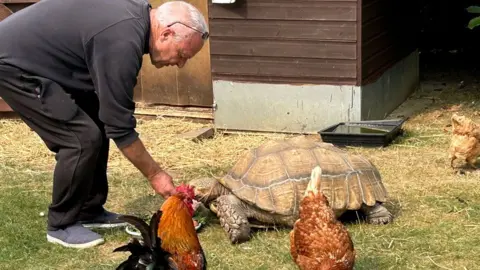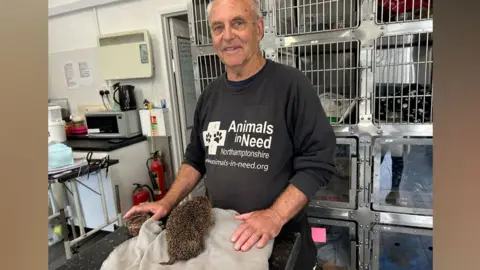Animal sanctuary's costs up due to unwanted dogs
 Kate Bradbrook/BBC
Kate Bradbrook/BBCThe owner of a wildlife sanctuary deluged with animals - particularly dogs - since the pandemic has spoken of the huge costs associated with their care.
Animals in Need, near Wellingborough, Northamptonshire, relies on food and financial donations to fund costs of £35,000 a month, compared to £20,000 to £25,000 a month before the pandemic.
"All the sanctuaries will tell you the same - since Covid, it's been an absolute nightmare the amount of animals wanting a home," said co-owner Roy Marriott.
The charity recently said it was helping people to keep their pets rather than rehoming them, to stop the influx.
 Kate Bradbrook/BBC
Kate Bradbrook/BBCThe sanctuary in Little Irchester was co-founded 34 years ago by Mr Marriott, now 75, looking after 20 dogs because "every animal deserves a life", he said.
It currently houses between 800 to 1,000 animals including dogs, cats, hamsters and tortoises, as well as farm animals and about 400 injured wildlife.
Mr Marriott said during the Covid-19 pandemic people were "buying dogs, cats, whatever - then they're off at work, no training done and they get rid of the animals".
"Our kennels are totally full with 50-odd dogs here and we're getting 20 calls a day to take dogs from the public," he said.
"We never had this problem before the pandemic, we never had it full constantly."
 Kate Bradbrook/BBC
Kate Bradbrook/BBCMr Marriott lives on site and works very long days, seven days a week, starting at 04:00.
Staff start arriving at 06:00 to feed the animals and, in theory, his day ends at 18:00, but he often gets call-outs for rescues late into the night.
Mr Marriott said the sanctuary, which has 12 paid staff and about 50 volunteers, relied on donations and legacies to fund its huge monthly bills, with heating alone costing £4,000 a month - more than twice what it was before the cost of living crisis.
"We have our own hospital, our own operating theatre and an X-ray machine and six really good vets that give up their time for us once a month," said Mr Marriott.
The vets "probably save us £20,000 to £30,000 a year" and it is also fortunate enough not to rent its current site, having been left the house and land in a will.
If the pets cannot be rehomed, the sanctuary becomes their permanent home, while the wildlife gets released once recovered.
Despite the issues, Mr Marriott said he would continue to take on animals where he could, because "I think they're the most badly treated things on this planet".
 Kate Bradbrook/BBC
Kate Bradbrook/BBCFollow Northamptonshire news on BBC Sounds, Facebook, Instagram and X.
